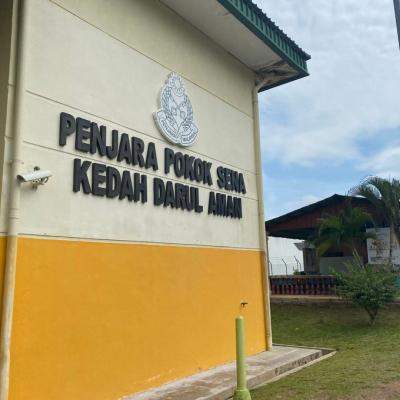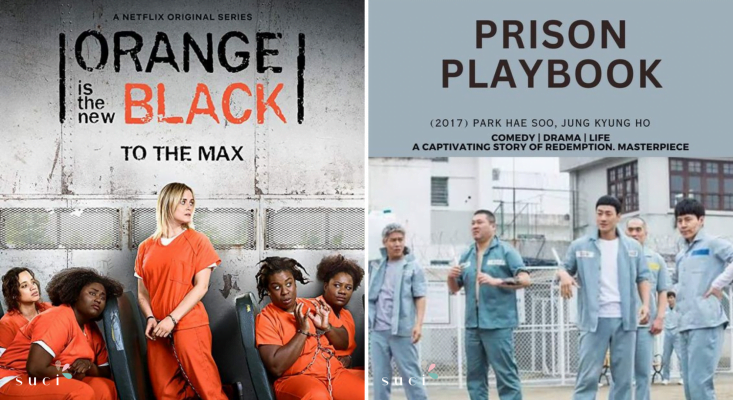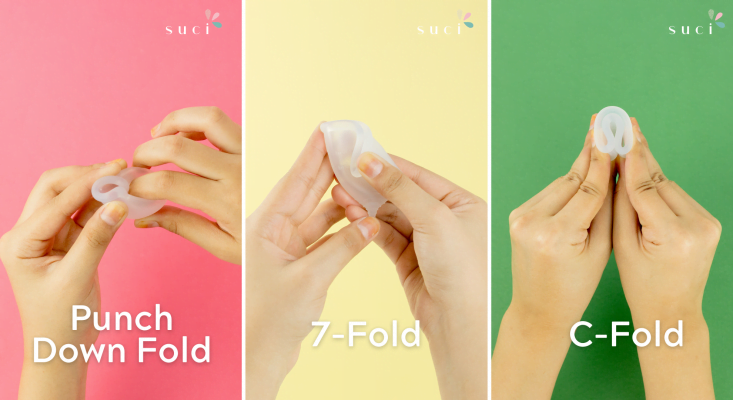Our journey to Penjara Pokok Sena began with an unexpected yet impactful email from Jia Vern, the research lead at HAYAT. She reached out to us, requesting support for female inmates who face challenges managing their periods. As part of our Suci Cares initiative—a CSR segment of our business—we eagerly agreed to provide Suci Cups to these women. This initiative followed other projects under Suci Cares, such as Misi Kemiskinan Haid in Semporna, Sabah, Gynecological Cancer Awareness with MAKNA, and Suci4Gaza. With permission from Penjara Pokok Sena, we set out to distribute Suci Menstrual Cups to 70 inmates and their wardens. This effort wouldn’t have been possible without the generous financial support of Datuk Muhammad Bakhtiar Wan Chik, a Malaysian politician and Member of Parliament for Balik Pulau.

On June 22, 2024, Izzati and I embarked on our journey from Shah Alam, driving for six hours to reach our accommodation in Alor Setar. Throughout the trip, we discussed various topics and shared our anxieties about the upcoming session. We questioned whether our attire was appropriate, whether the inmates would be receptive, and how to keep the session engaging while respecting the prison’s rules. We reassured ourselves with the knowledge that Jia Vern had mentioned the inmates were talkative and friendly. Izzati, a fan of “Orange Is the New Black,” had preconceived notions about prison life, while my understanding came from the K-drama “Prison Playbook,” which depicted the lives of inmates learning skills like sewing, baking, and carpentry. These insights helped us feel somewhat prepared for our visit.

The next day, we arrived at the prison, smoothly passing through registration at the main gate. Despite the sweltering Malaysian heat, the weather was pleasant. After parking, we were greeted by Pn Nadhirah, the Deputy Superintendent of Prisons. She invited us for breakfast and briefed us on the inmates’ daily routines, the technical skills they learn to earn money, and the significance of their uniform colours.
Escorted by Pn Nadhirah and Pn Feruzs, we proceeded through a series of security checks, leaving behind anything not mentioned in our permission letter. The prison was clean, well-maintained, and exuded a sense of order. As we walked through the compound, we noticed male inmates lowering their gazes and greeting us politely. At the gate to the female prison, an officer recorded our entry—five of us in total: Kak Yati from KeKasih, Michelle from Reprieve, Jia Vern from HAYAT, and Izzati and I – Team Suci. A mural at the female compound welcomed us, and the path to the prison compound felt reminiscent of a school’s walkway, evoking a sense of nostalgia.

The talk was held in a classroom, where inmates were already seated. They assisted us with setting up the equipment, handing over the HDMI cable, microphone, and speaker cable. Despite a minor hiccup when my laptop unexpectedly decided to update, Kak Yati smoothly began the introduction. Izzati then took over, covering menstrual hygiene topics. The inmates were attentive, answering questions about their menstrual routines, with varying responses about the number of pads they used daily.
When it was my turn, I introduced the menstrual cup, demonstrating its use and benefits. The inmates were excited, eager to touch the cups and learn about insertion and removal techniques. They requested to watch our instructional videos multiple times, and we demonstrated three types of folds: the 7-fold, C-fold, and punch-down fold. The Q&A session was lively, with inmates asking numerous questions. We were pleasantly surprised by their enthusiasm to try the cups, a stark contrast to the usual hesitancy we encountered in other sessions.

The inmates, mostly Malaysians with a few foreigners, spoke and understood Malay well. They were categorised by their uniform colours: white for those serving less than six months, red for six months and above, and blue for those sentenced to 18 months or more, including life sentences. Some were incarcerated for drug-related offences, a reminder of Malaysia’s stringent drug laws. However, recent reforms on April 11, 2023, have brought changes to death penalty sentencing, providing some hope for a more lenient approach .
Meeting the inmates was a profound experience. It reminded me that everyone makes mistakes, and those serving their sentences are still human. They yearn for change and deserve a chance to reintegrate into society. Even the wardens expressed a desire to support the inmates’ rehabilitation. As a Muslim, I thank Allah for keeping my family safe and pray for His guidance.

To the inmates of Penjara Pokok Sena, I extend my heartfelt gratitude. Meeting you was a privilege. Your eagerness to learn and willingness to embrace new ideas were truly inspiring. I wish you all the best in your journey towards rebuilding your lives, and may society welcome you with compassion and forgiveness. May you find hope, support, and new opportunities as you move forward. Remember, every new day is a chance to start afresh. Good luck, and may you find strength and peace in the days ahead.
With love,
끝, N
